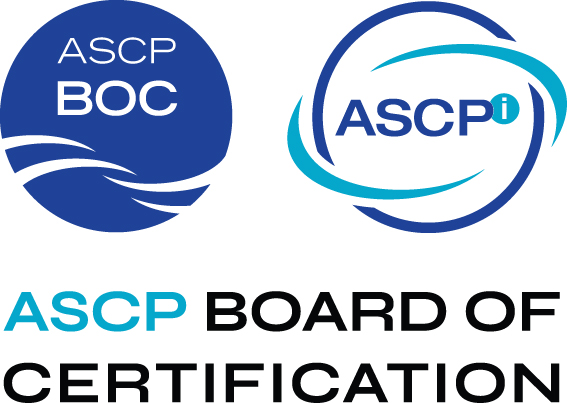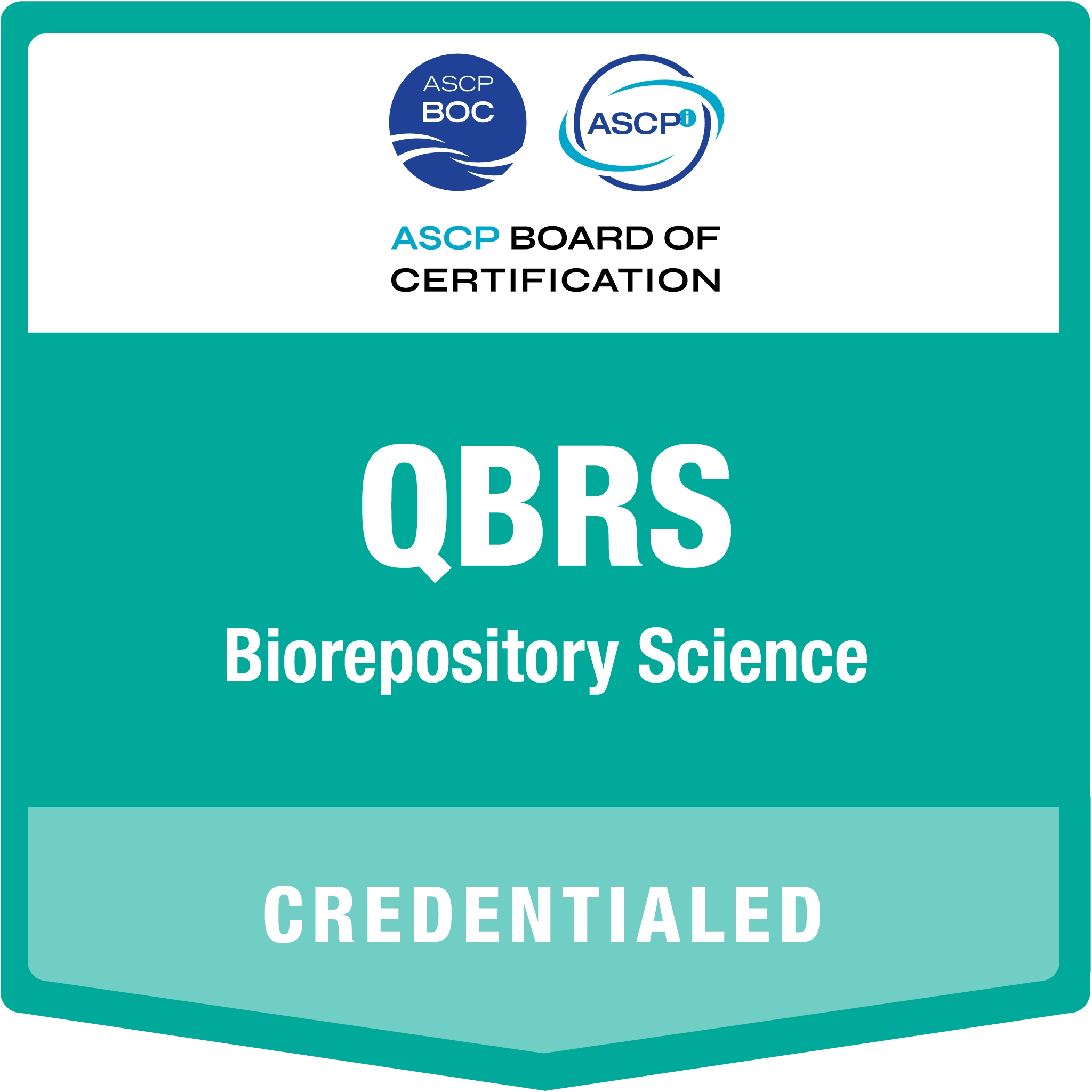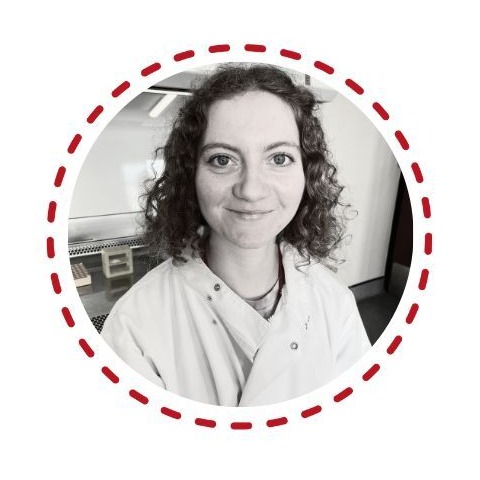Obtain certification and advance your career in biorepository science with our specialized credential.
Each credential has specific eligibility requirements. It’s your responsibility to confirm that your education, training, and/or experience meet the criteria. Submit the correct documentation with your application. Once submitted, the category and route of application cannot be changed.
Check Your EligibilityAn applicant must be able to verify that they meet all eligibility requirements, including education, training, and/or experience. For complete information, see the Documentation section of the website.
Education does not need to be from the United States. Details are available by reviewing the webpage titled Acceptable Education, also available in the routes below.
To be eligible for this examination category, an applicant must satisfy the minimum requirements (for degrees, the stated degree or higher) of at least one of the following routes:


Valid scientist (ASCP or ASCPi) or specialist (ASCP or ASCPi) certification,
AND 1 year of full-time acceptable experience in a biorepository^ within the last 5 years that must be documented on this Experience Documentation Form.
^For the purposes of the QBRS credential, specimens are procured only from humans or other animals. A biorepository is defined as a formally managed physical or virtual entity that may receive, process, store, and/or distribute specimens and/or samples and their associated data as appropriate in support of current or future use. All repositories should be planned, organized, and managed in accordance with applicable ethical and legal frameworks and comply with national/federal, regional, and local regulations.
Experience
To fulfill the experience requirement for the Qualification in Biorepository Science,
you must have experience within the time frame required in at least 4 of the 9 following areas:
Baccalaureate degree# from an accredited (regionally or nationally) college/university with a major in biology, chemistry, biotechnology, or a related field, OR a baccalaureate degree# from an accredited (regionally or nationally) college/university with a combination of 12 semester hours (18 quarter hours) in biology and chemistry, which may be obtained within, or in addition to, the baccalaureate degree,
AND 2 years of full-time acceptable experience in a biorepository^ within the last 5 years that must be documented on this Experience Documentation Form.
#The foreign degree must be equivalent to a U.S. degree which will be determined by an acceptable transcript evaluation.
^For the purposes of the QBRS credential, specimens are procured only from humans or other animals. A biorepository is defined as a formally managed physical or virtual entity that may receive, process, store, and/or distribute specimens and/or samples and their associated data as appropriate in support of current or future use. All repositories should be planned, organized, and managed in accordance with applicable ethical and legal frameworks and comply with national/federal, regional, and local regulations.
Experience
To fulfill the experience requirement for the Qualification in Biorepository Science,
you must have experience within the time frame required in at least 4 of the 9 following areas:
Master’s degree# from an accredited (regionally or nationally) college/university with a major in biology, chemistry, biotechnology, or a related field,
AND 1 year of full-time acceptable experience in a biorepository^ within the last 5 years that must be documented on this Experience Documentation Form.
#The foreign degree must be equivalent to a U.S. degree which will be determined by an acceptable transcript evaluation.
^For the purposes of the QBRS credential, specimens are procured only from humans or other animals. A biorepository is defined as a formally managed physical or virtual entity that may receive, process, store, and/or distribute specimens and/or samples and their associated data as appropriate in support of current or future use. All repositories should be planned, organized, and managed in accordance with applicable ethical and legal frameworks and comply with national/federal, regional, and local regulations.
Experience
To fulfill the experience requirement for the Qualification in Biorepository Science,
you must have experience within the time frame required in at least 4 of the 9 following areas:
Valid MLT(ASCP or ASCPi) or HT(ASCP or ASCPi) certification,
AND 2 years of full-time acceptable experience in a biorepository^ within the last 5 years that must be documented on this Experience Documentation Form.
^For the purposes of the QBRS credential, specimens are procured only from humans or other animals. A biorepository is defined as a formally managed physical or virtual entity that may receive, process, store, and/or distribute specimens and/or samples and their associated data as appropriate in support of current or future use. All repositories should be planned, organized, and managed in accordance with applicable ethical and legal frameworks and comply with national/federal, regional, and local regulations.
Experience
To fulfill the experience requirement for the Qualification in Biorepository Science,
you must have experience within the time frame required in at least 4 of the 9 following areas:
An associate degree# or 2-year diploma# from an accredited (regionally or nationally) college/university, with a combination of 12 semester hours (18 quarter hours) in biology and chemistry, OR 60 semester hours (90 quarter hours) of academic credit from an accredited (regionally or nationally) college/university, with a combination of 12 semester hours (18 quarter hours) in biology and chemistry,
AND 3 years of full-time acceptable experience in a biorepository^ within the last 6 years that must be documented on this Experience Documentation Form.
#The foreign degree must be equivalent to a U.S. degree which will be determined by an acceptable transcript evaluation.
^For the purposes of the QBRS credential, specimens are procured only from humans or other animals. A biorepository is defined as a formally managed physical or virtual entity that may receive, process, store, and/or distribute specimens and/or samples and their associated data as appropriate in support of current or future use. All repositories should be planned, organized, and managed in accordance with applicable ethical and legal frameworks and comply with national/federal, regional, and local regulations.
Experience
To fulfill the experience requirement for the Qualification in Biorepository Science,
you must have experience within the time frame required in at least 4 of the 9 following areas:
Master’s degree# from an accredited (regionally or nationally) college/university in biobanking or biorepository science,
AND a minimum of 6 months of full-time acceptable experience in a biorepository^ within the last 5 years. This experience may be obtained within, or outside of, the degree program and must be documented on this Experience Documentation Form and/or this Program Completion Documentation Form
#The foreign degree must be equivalent to a U.S. degree which will be determined by an acceptable transcript evaluation.
^For the purposes of the QBRS credential, specimens are procured only from humans or other animals. A biorepository is defined as a formally managed physical or virtual entity that may receive, process, store, and/or distribute specimens and/or samples and their associated data as appropriate in support of current or future use. All repositories should be planned, organized, and managed in accordance with applicable ethical and legal frameworks and comply with national/federal, regional, and local regulations.
Experience
To fulfill the experience requirement for the Qualification in Biorepository Science,
you must have experience within the time frame required in at least 4 of the 9 following areas:
You must upload the appropriate documentation form when you apply online, verifying that you meet the training and/or experience requirements for your category and route of application. You will also need to submit an acceptable transcript or transcript evaluation verifying that you meet the academic requirements. Gather your documents before submitting your application and application fee.
Once you have confirmed that you meet the requirements and have gathered your documents, submit your online application.
 |
In early 2026, the ASCP BOC will launch digital badging through Credly, a trusted provider that increases the visibility of ASCP BOC credential holders by securely showcasing and sharing professional credentials. Learn more about digital badges.
